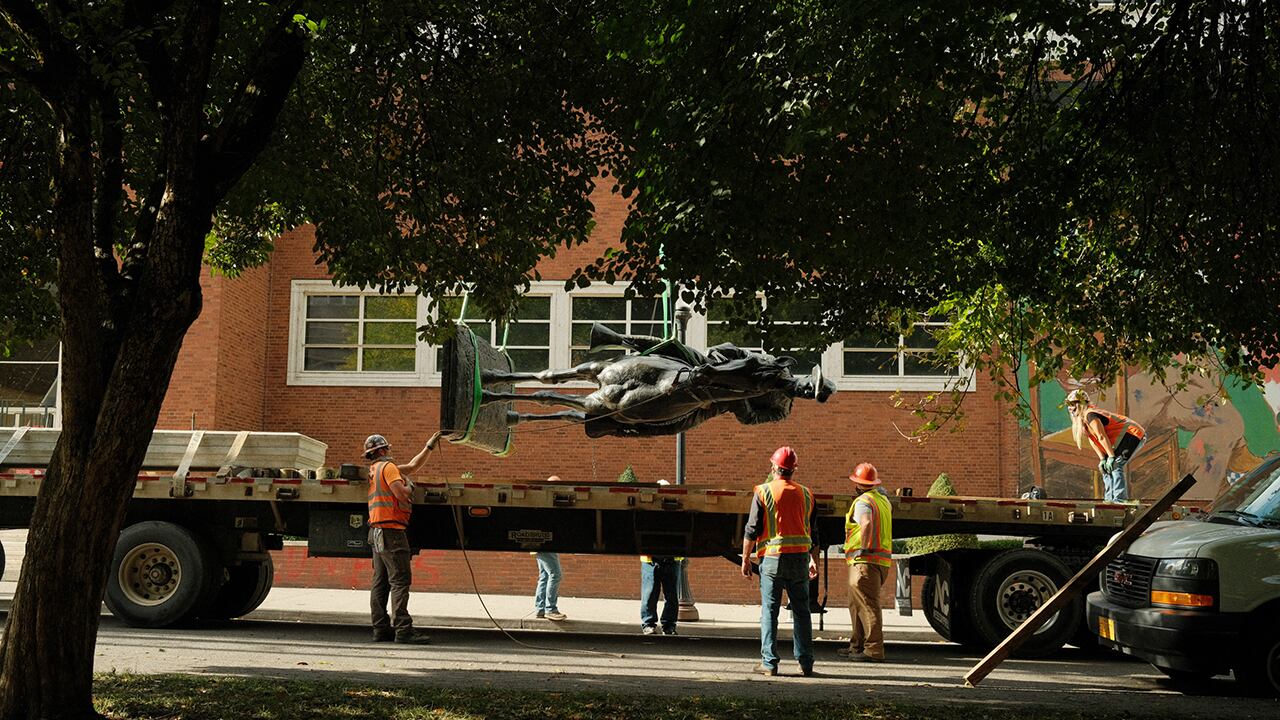A group of more than a dozen Portland power brokers has raised objections to City Hall over plans not to restore statues of former U.S. presidents that were toppled during civil unrest.
In a letter delivered to Commissioner Carmen Rubio on Sept. 28, the business and arts leaders said they agreed with an op-ed by Portland lawyer Aubrey Russell that decried the statue decision as rushed and secretive. The letter’s signatories include two significant downtown property owners—Greg Goodman and Jordan Schnitzer—as well as Columbia Sportswear CEO Tim Boyle and Pink Martini bandleader Thomas Lauderdale.
The letter, newly obtained by WW, arrived at City Hall a week before the Downtown Neighborhood Association sent its own missive, on Oct. 7. That letter warned that making a decision on the statues without public hearings would empower further vandalism.
“Views of all Portlanders need to be heard and respected,” neighborhood association chair Walter Weyler wrote. “Both openness and inclusiveness is paramount. The public must be actively engaged. Failure to do this appeases and enables anyone to act outside the law and encourages more such violence rather than condemning it.”
At issue are at least three statues damaged by rioters during racial justice protests last year. The monuments, all in downtown parks, portray Abraham Lincoln, Theodore Roosevelt, and a pioneer family.
This summer, officials with the nonprofit that manages Portland’s public art, the Regional Arts & Culture Council, set into motion a process likely to mothball the statues. The RACC board approved a policy that removes statues from public view if the “subject or impact of an artwork is significantly at odds with values of antiracism, equity and inclusion.”
On Sept. 29, the board voted to keep all three statues down.
Jeff Hawthorne, the city arts program manager, says city officials haven’t yet received a formal recommendation from RACC. He pledges a public process. “In the meantime, we have been discussing the situation with council offices, and we have some ideas about what a public process might look like,” Hawthorne writes, “but would like to see RACC’s official recommendations before determining next steps.”
Rubio’s spokesman, Will Howell, says the city expects to receive a formal report on Oct. 13 and will announce a public process soon after.
The letters suggest that the decision on the statues’ fates is unlikely to remain a quiet one. In a city without a functioning Republican Party, business leaders and neighborhood associations often act as a loyal opposition, and their early objections raise the possibility that this process could follow the same trajectory as a redesign of the South Parks Blocks—which appeared a sure thing this summer until some representatives of the city’s old guard raised hell.
